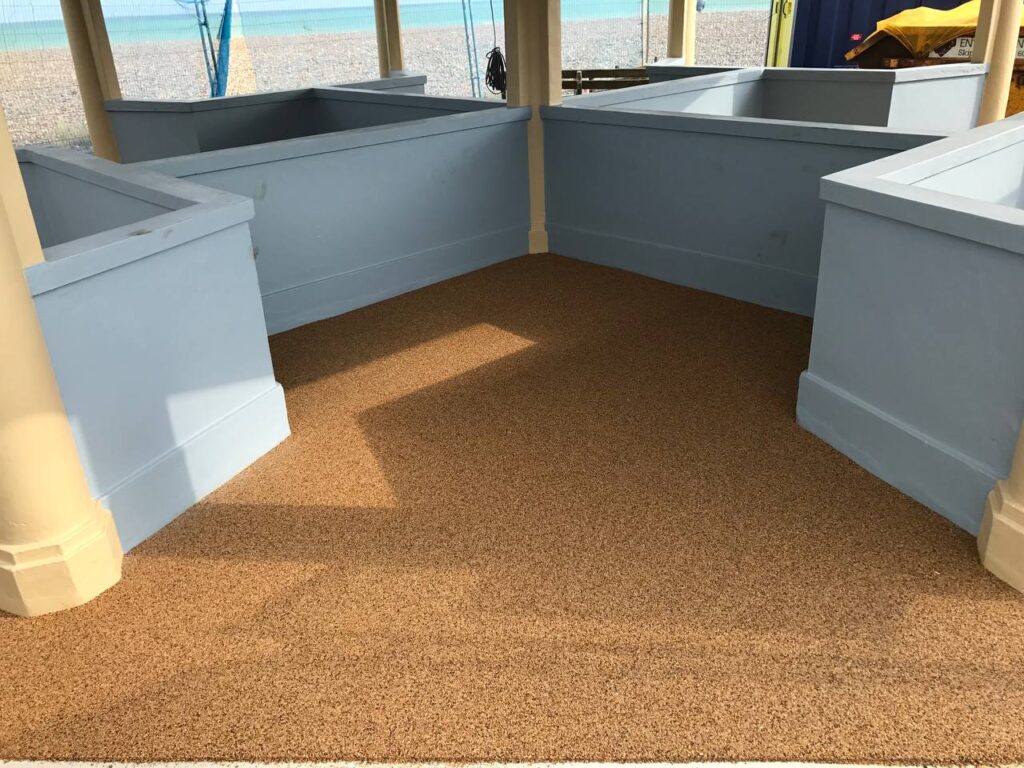A well-installed resin driveway offers a sleek, durable, and low-maintenance surface for your home, but like any surface, its lifespan depends on several key factors. Understanding what affects the longevity of a resin-bound driveway can help homeowners in Nottingham make informed decisions when planning an installation or maintaining an existing one.
At Nottingham Resin Drives, we aim to deliver surfaces that last for years with proper care. Here are eight critical factors that influence how long your resin driveway will last.
1. Quality of Installation
The most significant factor affecting a resin driveway’s lifespan is the standard of workmanship during installation. Inadequate mixing of resin and aggregate, poor sub-base preparation, or incorrect laying can lead to surface failures such as cracking, lifting, or premature wear. A professional installation using proper methods ensures a strong, level finish that resists damage over time.
2. Sub-Base Conditions
A stable and well-prepared sub-base is essential for any driveway. Resin bound surfaces are only as strong as the base beneath them. If the sub-base shifts, settles, or cracks due to poor compaction or inadequate drainage, the surface layer will follow suit. A suitable base such as porous asphalt or concrete is ideal for maintaining driveway integrity.
3. UV Stability of Resin
The type of resin used makes a difference. UV-stable polyurethane resins resist yellowing and degradation caused by sunlight exposure, which is crucial for maintaining colour and strength. Non-UV-stable resins may discolour and become brittle over time, especially in areas exposed to direct sunlight.
4. Weather During Installation
The weather conditions on the day of installation play a surprisingly large role. Resin must be laid in dry, mild conditions—extreme heat, cold, or moisture can affect how the resin cures and bonds to the aggregate and sub-base. Professional installers will plan accordingly to avoid laying resin in unsuitable conditions.
5. Type and Size of Aggregate
Different types and sizes of aggregate can affect the structural strength and surface finish of a resin driveway. Smaller stones create a smoother finish but may be less robust for heavy vehicle use, while a well-blended mix of sizes offers enhanced load-bearing strength. A high-quality aggregate also contributes to better binding and a more uniform finish.
6. Volume and Type of Traffic
The level of use your driveway experiences will naturally influence its lifespan. Heavy or frequent vehicle traffic can cause gradual wear. Resin driveways are typically suitable for cars and light vans, but if you regularly park larger vehicles, you’ll want a thicker installation and an especially robust base.
7. Drainage and Water Management
Although resin bound systems are permeable, poor drainage in the surrounding area can lead to standing water and erosion of the sub-base. Proper planning during installation ensures that water flows away efficiently, protecting both the resin surface and the supporting layers beneath.
8. Ongoing Maintenance
Routine maintenance helps preserve the appearance and durability of a resin driveway. While resin is low-maintenance, periodic sweeping to remove debris, occasional jet washing, and prompt attention to any oil or chemical spills will prevent damage and keep the surface looking fresh. Weed control along the edges is also essential to prevent roots from undermining the surface.
Conclusion
A resin driveway is a long-term investment in your property, and when properly installed and maintained, it can last 15 years or more. By understanding the factors that influence its longevity, you can make better choices during installation and ensure it performs well over time. For expertly laid, long-lasting resin driveways in Nottingham, contact Nottingham Resin Drives today. We deliver professional results tailored to your property’s needs.
Call us on: 0115 6479811
Click here to find out more about Nottingham Resin Drives
Click here to complete our contact form and see how we can help with your driveway needs.
